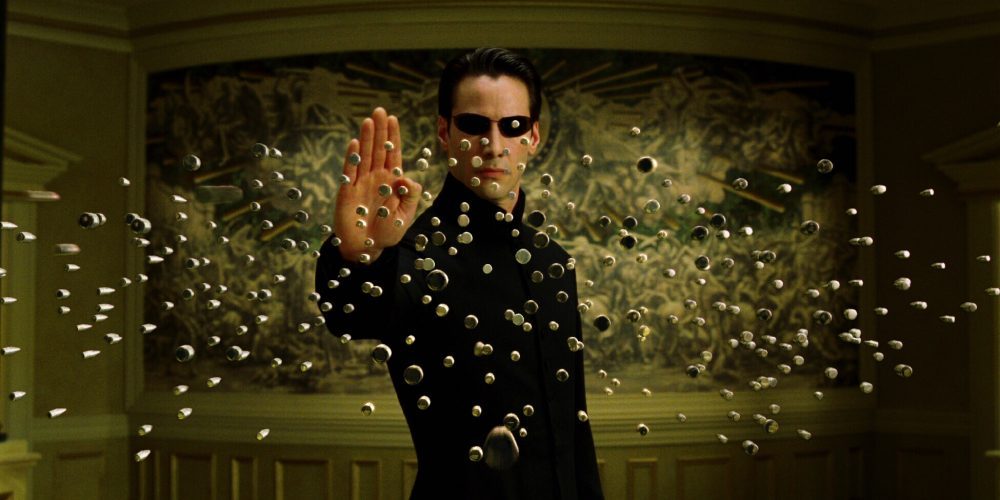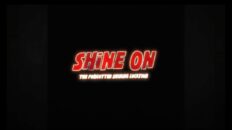Arts & Faith, hosted by Image Journal, has released its yearly Top 25 Films list for 2017. Centered around the concept of “waking up,” the list explores this central theme through a broad expanse of films that stretch back to Kurosawa’s 1952 classic Ikiru and up to Denis Villeneuve’s 2016 masterpiece Arrival. Such a list, with such a broadly defined topic, is almost impossible to be definitive, if only because character growth, broadly defined, should be a pre-requisite for any film. Thus, most any movie could have a defined awakening. However, the 25 titles chosen by Arts & Faith are anything but random. The collection of cinephiles who assembled this list clearly have put time, care, and an encyclopedic amount of film history knowledge to work in choosing the films for the list and a brief description of how each film fits their theme. There is also a two–part introduction to their offering that takes a holistic approach, finding the connective and thematic tissues that bind these movies together under the banner of “waking up.”
I would be remiss if I did not add my own submissions to such a list! While I am pleased to see the 2016 film Arrival on their list, I think there is perhaps an absence of more “pop” cinema. I would suggest the following films as worthy candidates to add:
The Matrix (1999, Wachowskis) – I’m not sure if there’s a film in recent memory that’s offered such a poignant example of waking up as the Wachoswki sisters’ The Matrix. Indeed, the film created the concept of the “red pill” as an exercise in truth, knowledge, and the falling of scales from our collective eyes. The fact that its central premise is the idea that all of humanity is in fact asleep and through their sleep are in service to robotic overlords would seem to be the modern culmination of the “waking up” concept. Neo chose knowledge and freedom, and the promise that comes from being chosen and special, over a life of mediocrity and lies. His search for the truth illuminated the dangers that come from “waking up,” but also the reality that staying asleep can be synonymous with death.
While you Were Sleeping (1995, Turtletaub) – Okay, maybe this is a little on the nose, and I’m certainly not going to claim it’s the cinematic masterpiece that many of the other films on this list are, but I believe this movie is a perfect example of the “waking up” theme. There is, of course, the literal awakening that comes from a man, Peter, who fell into a coma after a train station assault. He awakens and instantly falls under the false premise that he has amnesia, but commits to the life he is told he should live. Meanwhile, Sandra Bullock’s Lucy suffers from a waking coma. Her life is going nowhere, suffering from the loneliness that comes from having no family and the crushing weight of unfulfilled dreams, she finds herself swept into a large family when she becomes part of the fiction of Peter’s new life. Jack, Peter’s brother, through witnessing the transformation of his comatose brother and the introduction of Lucy to the family finds the courage to reject his family business and pursue his life’s passion of woodworking. It is a simple story and a thoroughly formulaic romcom, but it is perhaps because of these things that it is more accessible to any casual viewer of any other film on the list.
“Emissary” (1993, Carson) – Yes, I know, I’m cheating here. This is in fact the introductory episode of the television show Star Trek: Deep Space Nine. However, this is my attempt to right the injustice of there not being a Top 25 list of “waking up” episodes of television, for which I can think of a great many more wonderful examples. Sisko is a deeply troubled man at the start of his seven season run. He wishes to leave his career behind him and return home to Earth to live a quiet life following the death of his wife, Jennifer, to the soulless, cybernetic Borg. He takes command of Deep Space Nine, the most far flung outpost in Federation space, with one foot out the door. Through a series of events, Sisko finds himself in contact with a race of non-corporeal beings who live outside normal linear time. They do not understand the concepts of past and present. To them, everything is happening at the same time. When Sisko comes to them, he keeps seeing the moment of his wife’s death and demands the aliens cease their torture of making him relive such a painful moment. But the confused aliens insist that it is in fact Sisko who continues to bring them to this moment, as he “exists here.” Eventually, Sisko begins to understand that he has been trapped by the moment of her death, unable to move forward and put the past behind him. He decides to stay in Starfleet and continue his career and continue developing his relationship with his son, having finally awakened from the nightmare of Jennifer’s death.
I applaud Arts & Faith both for the sheer fun in such a thought experiment, for the effort they put in, and for the underlying aim of the list. There is a mission statement of sorts written into their introduction of the movies that reads: “What we desperately need now is the light to illuminate the good, the true, and the beautiful things in life that have no form or existence for so many of us. Yet these things are real and they can exist for us. To that end, the Top 25 Films on Waking Up will have succeeded if some viewers will take it as an example of the kinds of stories that can point to that light. Almost every awakening by a character in this list awakens to truths and realities that are already there.” Indeed, where modern film itself tends toward the dark–thematically, tonally, and visually–modern life itself has also turned in that direction. Emphasizing change, growth, and light in a time where all seem to be in such short supply is a worthy goal in and of itself.








